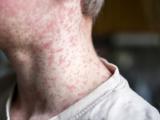Apr 15, 2011
Professional groups advise against rushing to judgment on electronic faucets
Two professional organizations say healthcare facilities should go slow on making any policy changes on the basis of a recent study that suggested that electronic faucets are more likely to cause water contamination than manual faucets are. In the Johns Hopkins study, 50% of water samples from electronic faucets were found to contain Legionella, versus 15% of cultures from manual faucets. The Association of Professionals in Infection Control and Epidemiology (APIC) and the American Society for Healthcare Engineering (ASHE) noted that the study, presented at a recent conference, has not been published in a peer-reviewed journal. "As such it is an interesting study, but any major changes in policy or actions by others should await publication," the two groups said. They commented that existing guidelines for the design of healthcare facilities permit the use of electronic faucets, since they allow
hands-free operation; that several studies have linked patient infections to manual faucets; and that electronic faucets conserve water. The two groups also observed that no patients at the Johns Hopkins study site were found to have infections with the bacterial species found in water from the automatic faucets.
Apr 11 statement from APIC and ASHE
Mar 31 CIDRAP News story on faucet study
Bulgaria profiles recent nosocomial measles infections
In 2009 and 2010 Bulgaria experienced its largest measles outbreak in more than three decades, and transmission in medical settings occurred in 326 of 24,137 cases with available clinical details, researchers from the country reported yesterday in Eurosurveillance. Though the number of nosocomial infections represented a small percentage of the cases, they are notable because of the risk to healthcare staff and patients at high risk for measles complications. Forty of the cases occurred in healthcare workers, most of which occurred during the March 2010 peak of the measles outbreak. Of those, 34 occurred in hospital setting, and 6 were linked to primary care clinics. Though most of the workers should have had at least one vaccine dose, due to their age and Bulgaria's immunization policies, only one had a record of receiving two doses. The others did not know their vaccination status. The authors said the findings
show the need to boost vaccination status in health workers, along with strict measures to prevent the spread of the virus in hospital and clinic settings. Many European countries, according to the World Health Organization are still experiencing high numbers of measles cases, especially France.
Apr 14 Eurosurveillance report
FDA launches Web site for Food Safety Modernization Act info
The US Food and Drug Administration has upgraded its Web site devoted to the new Food Safety Modernization Act (FSMA). It includes the full text of the law, signed on Jan 4, as well as information on its implementation; interviews, speeches, and statements; upcoming meetings, public hearings, and workshops; and frequently asked questions. Links on the site include one to the recently launched consumer-focused Web site on food recalls. Many resources on the site are translated into 11 languages in addition to English.
FMSA home page


















